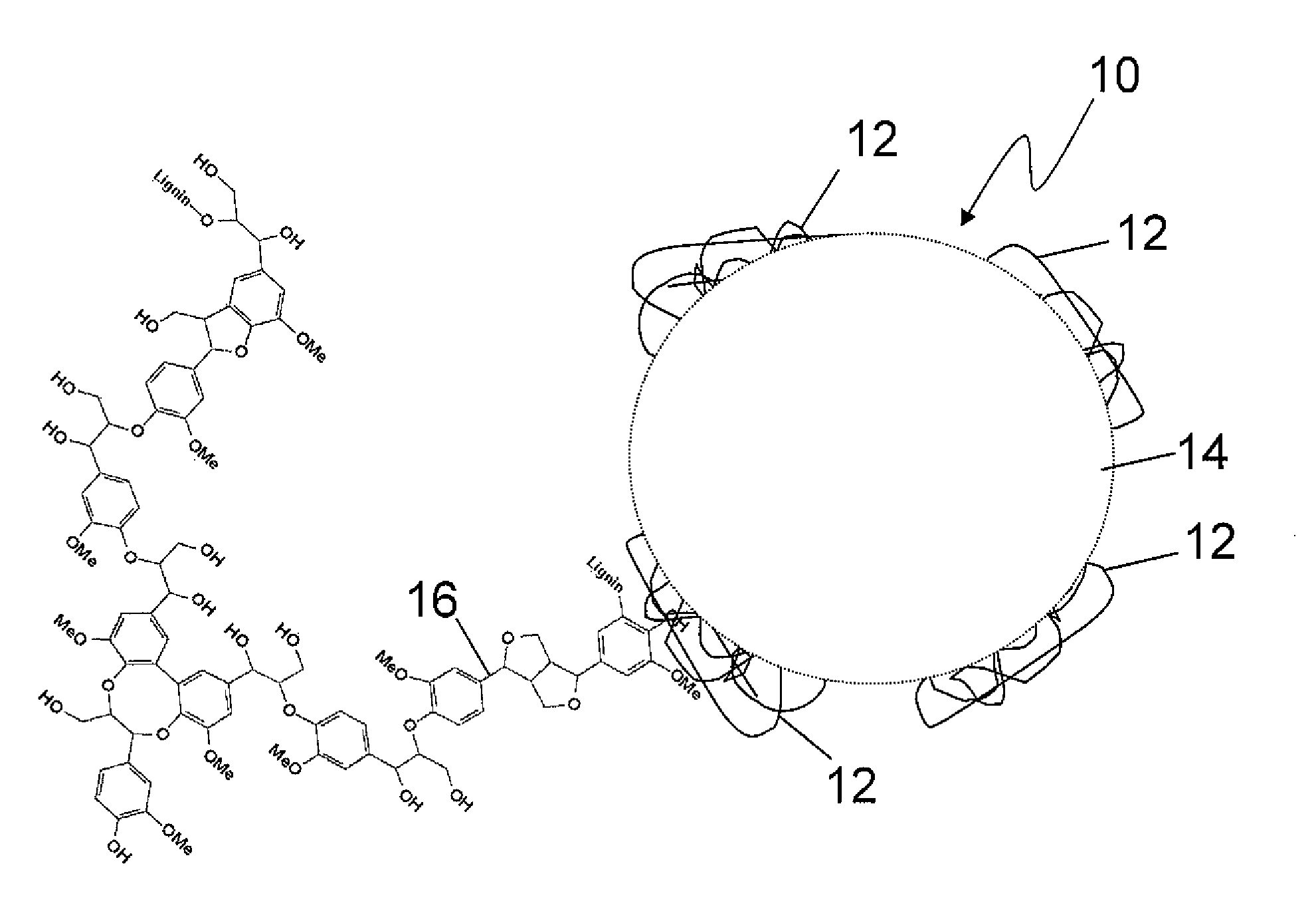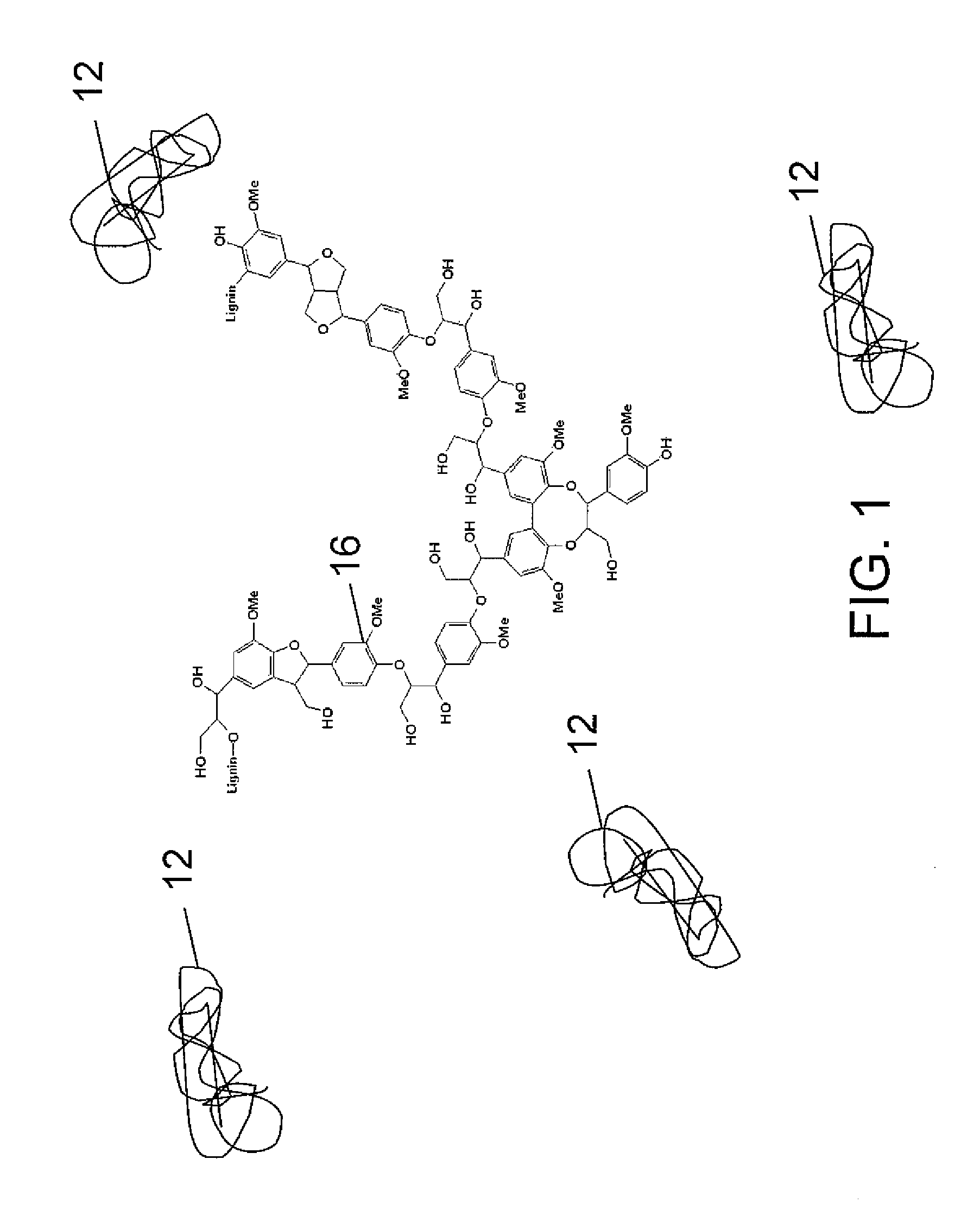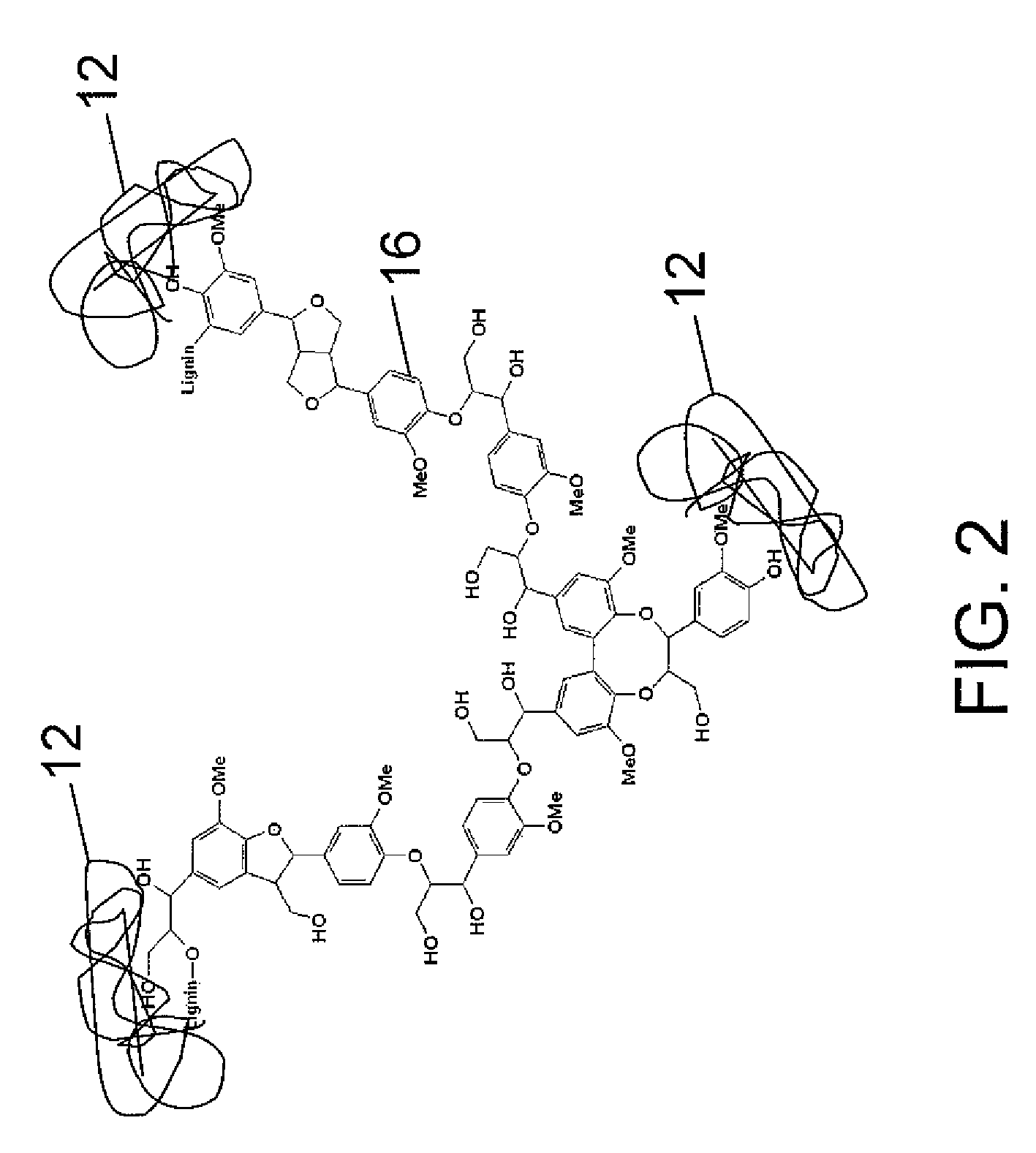Lignin sorbent, lignin removal unit, biorefinery, process for removing lignin, process for binding lignin and renewable material
a technology of lignin sorbent and sorbent, which is applied in the direction of filter regeneration, water/sewage treatment by ion exchange, and separation with moving sorbent, etc. it can solve the problems of hydrolysis enzyme cost, waste of lignin, and inability to produce the microbial cellulases needed to convert the cellulose of biomass into fermentable sugars, so as to reduce the cost of utilization and production, reduce the cost of enzyme operation and production cost, and reduce the cost of utilisation
- Summary
- Abstract
- Description
- Claims
- Application Information
AI Technical Summary
Benefits of technology
Problems solved by technology
Method used
Image
Examples
Embodiment Construction
[0026]This invention may include a lignin sorbent, a lignin removal unit, a lignocellulosic biorefinery, a process for removing lignin, a process for binding lignin, and / or a renewable material.
[0027]Cocktails of enzymes can hydrolyze and / or degrade cellulose to monomer sugar units. Cocktails of enzymes and / or hydrolysis techniques can include cellulases, hemicellulases, ligninases, lytic enzymes endocellulase, exocellulase, β-glucosidase, cellobiose dehydrogenase, manganese peroxidase, lignin peroxidase, and / or the like. The cost of cocktails of enzymes can be an economic driver for utilization of lignocellulosic material in fuels, chemicals, and / or the like.
[0028]Lignocellulosic biomass can be pretreated to disrupt the heteropolymer matrix of cellulose, hemicellulose, lignin, and / or the like. Solubilized lignin (pretreated) and / or residual solid-phase lignin can reversibly bind enzymes in the aqueous cocktail of enzymes. The result of lignin-enzyme interaction during hydrolysis ca...
PUM
| Property | Measurement | Unit |
|---|---|---|
| boiling point | aaaaa | aaaaa |
| boiling point | aaaaa | aaaaa |
| boiling point | aaaaa | aaaaa |
Abstract
Description
Claims
Application Information
 Login to View More
Login to View More - R&D
- Intellectual Property
- Life Sciences
- Materials
- Tech Scout
- Unparalleled Data Quality
- Higher Quality Content
- 60% Fewer Hallucinations
Browse by: Latest US Patents, China's latest patents, Technical Efficacy Thesaurus, Application Domain, Technology Topic, Popular Technical Reports.
© 2025 PatSnap. All rights reserved.Legal|Privacy policy|Modern Slavery Act Transparency Statement|Sitemap|About US| Contact US: help@patsnap.com



